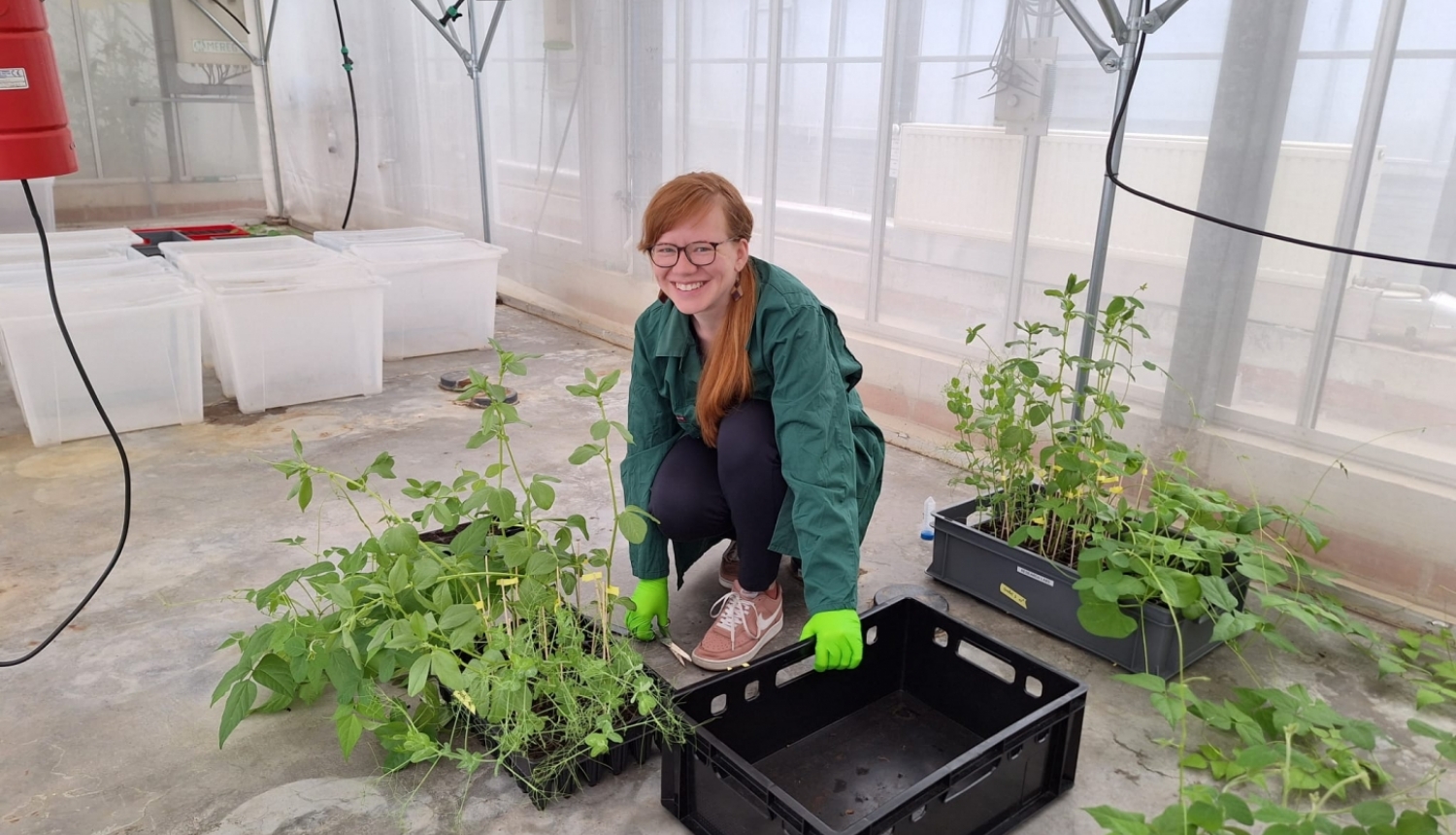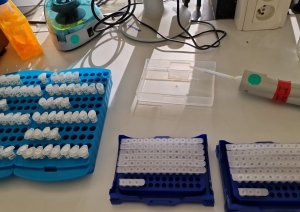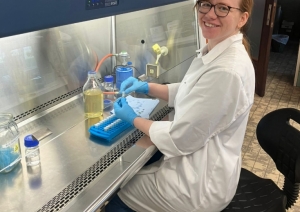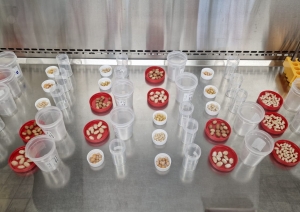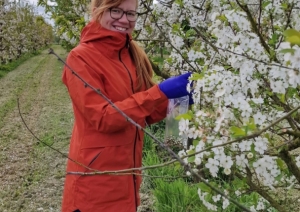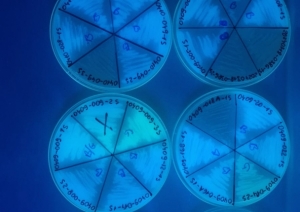Since 2021 the European and Mediterranean Plant Protection Organisation (EPPO) awards a fellowship for a 2-6 month work experience in another country or organisation to commemorate the late plant health expert Jens-Georg Unger and to promote international cooperation between young professionals in the field of plant health.
The State Plant Protection Service takes pride in the fact that in 2024 expert of the National Phytosanitary Laboratory Laura Celma has been awarded a fellowship and the opportunity to develop her professional skills for four months at the ILVO (Flanders Research Institute for Agriculture, Fisheries and Food) in Merelbeke, Belgium. The ILVO laboratory, where Laura Celma is currently working, is the European reference laboratory for bacteriology. Laura is currently working on two research projects there.
One of the projects (“Towards an alternative and well-founded control of Pseudomonas infections in cherry and pear”) aims to obtain data on the spread of Pseudomonas syringae pv. syringae (Pss) and P.s. pv. morsprunorum (Psm) in cherry and apple orchards, to determine how the spread of the bacteria is affected by climate, the development of disease symptoms in infected trees, etc. The information is needed to develop more effective methods to combat the infection in the future.
In this project, L. Celma takes part in the process of collecting samples from orchards, preparing them for molecular and bacteriological analyses, and prepares bacterial cultures and prepares samples for sequencing analyses if a colony morphologically corresponding to Pss or Psm is detected.
The second area of work Laura currently participates in is second phase of project “Curtobacterium flaccumfaciens pv. flaccumfaciens shows up in the growing grain legume sector – a real threat?” – development of appropriate molecular diagnostic methods to detect and identify the pathogen. Laura carries out preparation of different types of samples, artificial infection of different types of beans with the pathogen, observation and maintenance of infected plants in the greenhouse, DNA extraction and qPCR analyses. The method for pathogen detection and validation data will also be included in the EPPO diagnostic protocol developed by ERL.
Soom L. Celma will start to work for project “Preparing for the introduction of exotic strains of the Ralstonia solanacearum species complex (i.e. of Ralstonia pseudosolanacearum and Ralstonia syzygii) – valorisation of culture collections and validation of diagnostics and methods for epidemiosurveillance”, in which ILVO researchers, in collaboration with EUPHRESCO, will work on improving diagnostic methods, research pathology and epidemiology of the "tropical" species Ralstoni pseudosolanacearum and R. syzygii, as well as investigate the genetic diversity, population structure and evolutionary dynamics of these two strains.
“To participate in the project, I have begun to learn command line operations in the Linux environment. Later on there will be more advanced training in bioinformatics and in conducting MALDI-TOF analyses." says L. Celma.
"When planning experiments and analysing the results, I am always asked for my opinion and my ideas are taken into account. I share the experience I have gained working in the State plant protection service's National Phytosanitary Laboratory. As the Nematology Unit receives a lot of samples at the moment, I also go to help the experts in this field whenever possible, gaining insight into the current issues in this field as well. The knowledge and skills acquired at ILVO will be useful for my further career development and for optimising and improving the work of the National Phytosanitary Laboratory", says our expert.




